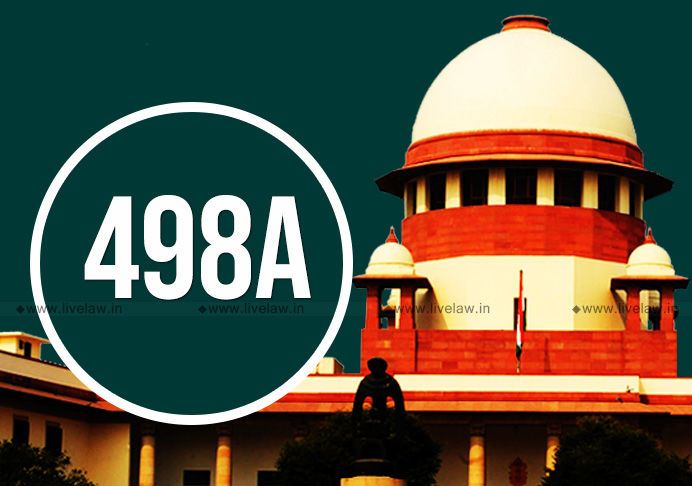Top Divorce Lawyer in India
Hiring an experienced divorce lawyer is the best way you get peace of mind when dealing with matrimonial cases, child custody, alimony, and mutual divorce or contested divorce proceedings. We are top rated divorce lawyer for marriage issues in Noida and Ghaziabad to file or defend your mutual divorce petition, contested divorce, alimony, domestic violence (DV), interim maintenance, 125 CrPC, dowry harassment u/s 498a, women cell complaints or any other related matters. We have lawyers in all major localities of Noida including Noida Extension, Sector 15, Sector 26, Sector 20, Sector 12, and also at Ghaziabad including Indirapuram, Vaishali, Kavi Nagar, Raj Nagar Extension and many more. These lawyers practice in courts in Noida including District Court Gautam Budh Nagar, District Court Surajpur Greater Noida, and District Court of Ghaziabad.
Divorce is a painful situation for couples but sometimes it's inevitable and requires a professional lawyer's advice. We are one of the best and top divorce lawyer in Noida, Ghaziabad and Delhi who advises and represent his clients on various aspects of rights and remedies under the Special Marriage Act and Hindu Marriage Act in regard to divorce, alimony, maintenance, inheritance, custody, and guardianship of children.
SERVICES PROVIDED BY OUR BEST DIVORCE LAWYER IN INDIA
- Case under the protection of women from Domestic Violence Act, 2005
- Seek Maintenance under Section 125 CrPC
- A petition under Section 9 of Hindu Marriage Act, 1955
- F.I.R under Dowry Prohibition Act,1961
- Application of anticipatory bail, interim bail, and regular Bail
- First information report under section 498A including various sections of Indian penal Code,1860, and guidance to appear before CAW cell.
- F.I.R. quashing before Hon'ble High Court.
- Charge sheet quashing before Hon'ble High Court.
- A petition under Section 13 of Hindu Marriage Act,2005 for contested divorce on grounds such as cruelty, adultery, desertion of more then two years, conversion to another religion, mental disorder.
- The petition under Section 11 of Hindu marriage Act to declare marriage as Null and void on various grounds.
- Mutual consent petition for divorce under section 28 of Special Marriage Act,1954.
- Mutual consent petition for divorce under section 13B of Hindu Marriage Act,2005.
- Application under Section 26 of Hindu Marriage Act,2005 seeking custody of Children.
- Application under Section 24 of Hindu Marriage Act,2005 seeking maintenance pendente lite and expenses of proceedings.
- Application under Section 25 of Hindu Marriage Act,2005 seeking permanent maintenance and maintenance.
- Petition under Section 27 of Special Marriage Act,1954 for contested divorce on grounds such as cruelty, adultery, desertion of more then two years, conversion to another religion, mental disorder.
- Seeking custody and visitation rights under Guardianship and Ward Act ,1890.
We Are Expert
We are known for dealing with vexed divorce disputes fairly, often advocating amicable resolution among warring couples. We are the top divorce lawyer in Noida and top divorce lawyers in Ghaziabad.

Protection of women from Domestic Violence
The Protection of Women from Domestic Violence Act, 2005, is a vital law enacted to safeguard women from abuse within Indian households. It affirms a woman’s right to live in dignity, safety, and respect in her home, regardless of her relationship with the abuser or ownership of the property. The Act applies to all women—wives, mothers, daughters, sisters, widows, and female live-in partners—living in a shared household. It defines domestic violence broadly, covering physical, verbal, emotional, sexual, and economic abuse. A key feature is that even threats of abuse or mental cruelty are recognized and punishable under the Act. It also addresses dowry-related violence by classifying coercion for dowry as a form of domestic abuse, giving women the legal grounds to seek protection and justice. Importantly, the Act grants women the right to remain in their shared household, ensuring they are not rendered homeless due to violence. It empowers victims with legal remedies such as protection orders, residence orders, and financial support. This law aims to create a protective and responsive environment for women, helping them break free from cycles of abuse and live a life free from fear, intimidation, and injustice, with access to timely and effective legal relief.

Maintenance of wife and children from Husband
It is a fundamental legal and moral duty of a man to provide maintenance to his wife and children when they are unable to support themselves. Indian law mandates that a husband must ensure the financial well-being of his wife and children by offering a monthly allowance as ordered by the court. This obligation applies not only to legitimate children but also to illegitimate children, who are equally entitled to receive maintenance until they reach the age of majority. In special circumstances, if a child continues to suffer from a mental or physical disability even after attaining majority, the responsibility to maintain such a child remains with the father. Similarly, a husband is required to provide maintenance to his wife until she either remarries or acquires sufficient means to maintain herself independently. The law also allows the wife to claim expenses for legal proceedings, and in deserving cases, the court may direct the husband to bear those expenses. Additionally, the law emphasizes timely relief to the aggrieved woman, stating that any application for interim maintenance and expenses should be resolved, as far as possible, within sixty days from the date of service of notice to the respondent. This ensures quick financial support and justice.

F.I.R under Dowry Prohibition Act
No doubt, as per Section 3 of the Dowry Prohibition Act, giving or abetting to give dowry is a punishable offence, but the petitioner does have protection of Section 7(3) of the Act. Section 7(3) provides that notwithstanding anything contained in any law for the time being in force, a statement made by the person aggrieved by the offence under the Act shall not subject him to prosecution under this Act. In the instant case, it is obvious that respondent No.2 has filed his petition under Section 156(3) Cr.P.C. only on the basis of the allegations made by the petitioner Pooja Saxena in her complaint made to CAW Cell which formed basis for the registration of FIR No.232/2009 under Section 498A/406/34 IPC against respondent No.2 and others as well as in her petition under Hindu Marriage Act and Domestic Violence Act. Thus, it is clear that FIR No.59/2010 registered against the petitioner under Section 3 of the Dowry Prohibition Act, 1961 is based upon the statements made by the petitioner in her complaint to CAW Cell and above noted petitions. Therefore, she is entitled to the protection of Section 7(3) of the Act, being the victim of demand of dowry. Therefore Victim has the protection under the 7(3) of the act and no complaint can be lodged against her.

Anticipatory Bail, Interim Bail, and Regular Bail
Regular bail is granted to a person who has already been arrested and is in police custody. Once arrested, the accused can approach a lawyer to file a bail application in the appropriate court. Regular bail is categorized into two types: bail for bailable offences and bail for non-bailable offences. In the case of bailable offences, the accused has the right to be released on bail. The law mandates that the police or the concerned authority must release the person upon furnishing the required bail bond without unnecessary delay or discrimination. However, for non-bailable offences, bail is not a matter of right and depends on the discretion of the court. The trial court considers various factors before granting bail, such as the nature of the offence, evidence, criminal history, and possibility of tampering with evidence. Nevertheless, courts may grant bail in non-bailable offences under special conditions—such as if the accused is a woman, below or at the age of 16, or suffering from serious illness or infirmity. Interim bail is a temporary relief granted to the accused until the regular bail hearing takes place. Furthermore, a person who fears arrest in a non-bailable offence may apply for anticipatory bail, which offers protection from arrest before it actually occurs.

First Information Report under section 498A
A woman who has been subjected to abuse—whether physical, mental, emotional, or sexual—should never hesitate to report the crime. The law in India provides strong protection for women against cruelty and violence, especially within domestic settings. One of the first steps in seeking justice is filing a First Information Report (F.I.R) at the nearest police station. This official complaint acts as the starting point for legal proceedings and helps in ensuring that the victim is safeguarded from further harm by the husband or his family members. The F.I.R should include detailed accounts of the incidents, including dates, nature of abuse, names of individuals involved, and any available evidence. It is advisable that the report be prepared with professional legal guidance to ensure accuracy and completeness. An F.I.R can be filed not only by the victim herself but also by anyone related to her by blood, marriage, or adoption. Once the complaint is registered, the police are duty-bound to take appropriate action, and the court can take cognizance to begin the trial process. Victims should also seek assistance from legal aid services, support groups, or NGOs to guide them through the legal and emotional aspects of the case, ensuring justice and protection.

Quashing of F.I.R. before the High Court
If a false F.I.R. has been lodged against a person with malicious intent, the aggrieved individual has the legal right to seek relief by filing an application for the quashing of the F.I.R. before the High Court of the respective State. The application can also include a request to quash all subsequent proceedings arising from the false complaint. The High Court holds the power under Section 482 of the Criminal Procedure Code (CrPC) to quash an F.I.R. if it finds that the complaint was made with a dishonest motive to harass, defame, or trouble the accused. This remedy is particularly important in cases where the offence is non-compoundable, meaning it cannot be settled or compromised outside the court. However, the burden of proof lies on the aggrieved person to establish that the F.I.R. was filed with wrongful intent and lacks genuine substance. Courts exercise this power cautiously, and the decision to quash an F.I.R. is made only after careful judicial scrutiny. Therefore, a well-drafted application supported by strong legal arguments and relevant evidence is essential. The process demands a high degree of legal expertise and precision, making it crucial for the aggrieved person to seek competent legal representation to pursue the matter effectively.

Mutual Divorce under Section 13(B) of Hindu Marriage Act
The husband and wife can jointly file a petition for dissolution of their marriage by mutual consent under the relevant provisions of the law in the appropriate family court. This process is available when both parties agree that the marriage has broken down irretrievably and there is no possibility of reconciliation. One of the key conditions for filing such a petition is that the husband and wife must have been living separately for at least one year prior to filing, and they must declare that they are unable to live together and have mutually decided to end the marriage. After filing the initial petition, the law mandates a cooling-off period of six months, during which the parties can reconsider their decision. After the expiry of six months but within a maximum period of 18 months from the date of filing, the parties must file a second motion jointly to confirm their intent to dissolve the marriage. The court, upon satisfaction that all conditions are met, may grant a decree of divorce. Filing a mutual divorce petition requires proper documentation, clear communication, mutual respect, emotional maturity, patience, empathy, understanding, cooperation, trust, transparency, and legal guidance to ensure the process is smooth, time-efficient, fair, amicable, and free from unnecessary conflict or emotional distress.

Contested Divorce under Section 13(1) of HMA
In all cases where one spouse is willing to dissolve the marriage but the other spouse does not consent, the separation is not by mutual agreement and is termed as a contested divorce. A contested divorce arises when one party has valid legal grounds—whether tangible or intangible—for seeking the dissolution of the marriage. These grounds may include adultery, cruelty (physical or mental), desertion for a continuous period of two years or more, conversion to another religion, mental disorder, venereal disease, or the spouse being unheard of for a period of seven years. In such cases, both parties are required to appoint separate legal counsel to present their arguments and defend their positions before the court. The legal process involves filing of a divorce petition, serving notices, examination of evidence, witness testimonies, and multiple hearings. Since contested divorces can be emotionally and financially exhausting, it is essential for both parties to proceed with proper legal advice and careful planning. In Indian society, where Hindu marriage is often seen as a sacred and lifelong bond, a contested divorce is not taken lightly and requires strong justification. Therefore, the petitioner must approach the court with sincerity, proper documentation, and a thorough understanding of legal rights and procedures.

Application under Section 24 of HMA for Maintenance
The Indian law provides for maintenance to a dependent spouse to meet their basic needs while a ‘suit is pending’ or ‘while litigation continues.’ This provision ensures that a spouse, whether wife or husband, who is unable to financially support themselves during the ongoing legal proceedings, receives necessary financial assistance. Maintenance, in this context, refers to the provision of living expenses and financial support to the dependent spouse, enabling them to maintain a basic standard of living while the legal matter is unresolved. However, for maintenance to be granted, the applicant must demonstrate that they have no independent income that is sufficient to support themselves or to cover the expenses of the ongoing litigation. In cases of maintenance, the court will assess the financial needs of the dependent spouse and the ability of the other spouse to provide financial assistance. Additionally, the maintenance application may include the costs of any children who are living with the applicant during the litigation period. The court will also consider the children’s needs in determining the appropriate amount of support. This provision is particularly important in cases where one spouse is financially vulnerable during legal proceedings, ensuring they are not left without resources to manage daily life and legal expenses.

Mutual Divorce under section 28 of Special Marriage Act
Mutual divorce under Section 28 of the Special Marriage Act, 1954, allows a married couple to dissolve their marriage by mutual consent. This provision is available to couples who have been married under the Special Marriage Act, a law that governs interfaith and inter-caste marriages in India. The mutual divorce process under this section is based on the agreement of both parties that their marriage has irretrievably broken down and there is no possibility of reconciliation. To file for a mutual divorce, both parties must jointly approach the court and submit a petition, stating that they have been living separately for at least one year, and they mutually agree that the marriage should be dissolved. After filing the petition, a cooling-off period of six months is required. This period gives the parties an opportunity to reconsider their decision and ensures that the divorce is not granted impulsively. However, in some cases, the court may waive this six-month period if it believes that reconciliation is not possible. After the cooling-off period, both parties must file a second motion to confirm their desire for divorce. If the court is satisfied with all conditions, it will grant a decree of divorce. This process helps couples to part ways amicably and without prolonged legal proceedings.

Contested Divorce under section 27 of Special Marriage Act
The Special Marriage Act, 1954, governs marriages between individuals who wish to marry under a secular law, especially in cases of interfaith or inter-caste marriages. It also provides a legal framework for divorce for couples who have married under this Act. A contested divorce, under this Act, occurs when one party seeks to dissolve the marriage, but the other party does not agree. This type of divorce is filed when one spouse has specific grounds for seeking separation and dissolution of the marriage, but the other party disagrees. Common grounds for a contested divorce include adultery, cruelty, desertion, mental disorder, and conversion. Unlike mutual divorce, where both parties agree, contested divorce involves legal battles where each party has separate legal representation to argue their side. The court then evaluates the evidence and arguments presented by both parties before making a decision. This process can be lengthy and emotionally taxing for both parties. It requires a high level of legal acumen, as navigating a contested divorce involves complex legal processes and strategies. Therefore, it is crucial for both parties to proceed with caution and legal guidance to ensure that their rights are protected and the divorce process is handled efficiently.

Application under Section 37 of SMA for Maintenance
It is a fundamental duty of a husband to maintain his wife and children as long as they are unable to support themselves. This legal obligation ensures that the wife and children are not left in a vulnerable position and are provided with necessary financial support for their livelihood. The court has the authority to order the husband to either pay a lump sum or make a monthly allowance to his wife for her maintenance, based on the circumstances of the case and what seems just and fair. In cases where the husband’s financial situation allows for it, the court may impose an order for maintenance to be paid regularly. In some instances, if the husband owns property, the court may create a charge on it to secure the payment of maintenance, ensuring that the wife has a legal claim on the property for her support. It is important to note that the maintenance order is not fixed permanently. If there is a significant improvement in the wife’s financial condition, such as securing employment or other sources of income, the husband may request a modification of the maintenance order. This ensures that maintenance payments are fair and in line with the current circumstances of both parties.
Get in touch
Please fill in the form and we will discuss your requirements
We value your enquiry, and will make every effort to connect with you asap.




